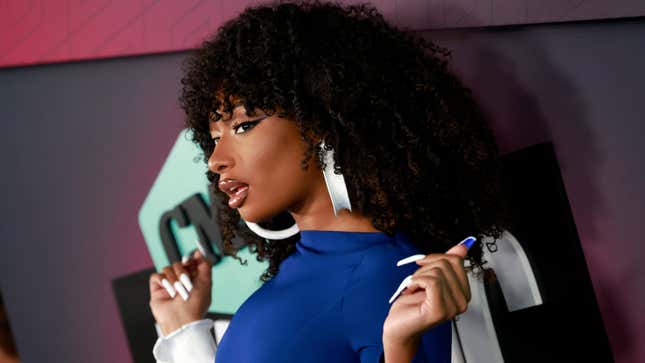Megan Thee Stallion: ‘People Treated My Trauma Like a Running Joke’
In a new essay for Elle, the rapper—who was shot by Tory Lanez in July 2020—reflects on the bullying and public humiliation survivors face.
JusticePolitics

In December, a Los Angeles jury found rapper Tory Lanez guilty of assault with a semiautomatic firearm—among other crimes—for shooting Megan Thee Stallion in July 2020. The guilty verdict came after years of not just denials from Lanez, but targeted harassment aimed at Megan, to the detriment of her mental health: She testified last December that she wished Lanez “would have just shot and killed me if I knew I would have to go through this torture.”
In a personal essay for Elle’s May issue published on Tuesday, for the first time, Megan wrote at length about what she endured in the years between the shooting and the guilty verdict, connecting her experience to the experiences of other survivors who face public bullying and mockery as a systemic deterrent from coming forward. “Not only did I survive being shot by someone I trusted and considered a close friend, but I overcame the public humiliation of having my name and reputation dragged through the mud by that individual for the entire world to see,” Megan wrote.
-

-

-

-

-

-

-

-

-

-

-

-

-

-

-

-

-

-

-

-

-

-

-

-

-

-

-

-

-

-

-

-

-

-

-

-

-

-

-

-








































